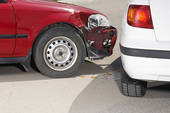 Guest Contributor: Karlene Russell
Guest Contributor: Karlene Russell
Most persons look forward to that day when they retire from a 9 to 5 job. They imagine themselves just relaxing and indulging in hobbies, charities and grandchildren with the occasional trip or cruise to some exotic place, or visiting family and close friends living overseas.
Travelling the world after one retires sounds like a splendid idea; however, in addition to the obvious financial constraints there are also health considerations that may restrict travelling. Many travellers experience anxiety with flying, which when combined with other factors such as flight delays, baggage handling and long walks to departure gates, all contribute to stressful situations particularly for seniors. Also, the thin air, low cabin pressure, low humidity, cramped seating, and inactivity may pose problems for elderly travelers.
It has been reported that cabin pressure/oxygenation affects blood oxygenation in persons with cardiac problems or vascular conditions. Also, motion sickness from a rough flight, can affect elderly persons who have been exposed to a variety of the above-mentioned environmental changes that occur during flying. Most senior citizens in the Caribbean, with the possible exception of those who have known diseases or illnesses, tend not to think of potential health issues that can arise during travelling.

These realities were brought home to me recently after two incidents – the first involving my 75 yr old mother who was travelling from Jamaica to visit me in Guyana, and the other involving a 76 yr old heart patient whom I met on a flight. These incidents were eye-openers and inspired me to share my experiences and to perhaps highlight some important issues for consideration which can help to better prepare our senior citizens and their families.
In the first incident, my mother experienced a mild heart attack while waiting in a departure lounge in transit to Guyana. At the time, she was not aware that it was a heart attack and it was only the following day that tests confirmed a mild heart attack. Prior to her trip no one was aware that she had a heart condition, so we were very lucky that she survived this incident.
In the second incident, I witnessed the anxiety of a daughter travelling with her elderly mother when the mother became ill mid-flight. Luckily the daughter was a nurse and knew to ask for oxygen, and with the aid of a doctor on board as well as from medical personnel in the airport at the next transit stopover, normalcy in vital statistics was regained, and her mother was cleared for onward travel. The daughter was grateful for small mercies as a stopover for medical treatment would have incurred unexpected medical and hotel costs, flight change fees etc.
Phew!! those were both close calls, but as I reflected on those two incidents I decided to compile of list of pointers you can use to guide the seniors in your life before and during travel.
Before the Flight
1. Encourage your loved ones to have a ‘STAYCATION’, and discourage where possible trips overseas that involve long flight times and multiple transit stops and flight changes. Many of us use online booking but bear in mind that travel agents may be able to find less complicated routes to the destination. Also consider having overseas relatives visiting them instead.
2. Seniors over the age of 65 should avoid travelling alone if they have known illnesses or health challenges. Within the Caribbean context, some seniors over 65 are still gainfully employed, or work as consultants or are involved in private family business that require extensive travelling. These persons should try to travel along with another colleague.
3.  Make sure medical check-ups are done before the trip. This is especially important for persons who have coronary heart disease, hypertension or any other chronic condition, or if they have recently undergone surgery or experienced a heart attack. Persons with diabetes will need medical advice on how to safely stagger their medications to adapt to a different time zone.
Make sure medical check-ups are done before the trip. This is especially important for persons who have coronary heart disease, hypertension or any other chronic condition, or if they have recently undergone surgery or experienced a heart attack. Persons with diabetes will need medical advice on how to safely stagger their medications to adapt to a different time zone.
4. If they intend travelling to areas where infectious diseases are present, make sure that they are fully vaccinated.
5. Make sure that they get an adequate supply of prescribed medication to last the entire trip as some drugs may not be available overseas.
6. If possible secure international medical insurance for emergencies
7. Make sure that they have extra cash or ensure that sufficient funds are available on the credit card in the event of medical emergencies which may warrant doctor fees, hospitalization, hotel accommodation, flight changes etc.
8. Contact information for family doctors and specialists should be kept handy.
9. Get a mobile telephone that roams so that family members can be readily contacted in the event of an emergency.
10. Ensure that they eat a proper meal and do not rely on food to be provided on the flight, particularly where there are specific dietary requirements.
11. Make arrangements for wheelchair needs in advance.
12. Request an aisle seat to allow for easy access to the restroom as seniors tend to go to the toilet more often.
 During the Flight
During the Flight
1. Caribbean seniors tend to travel with lots of gifts and goodies including food for relatives living overseas. Whereas this is a nice gesture, it is not wise to be burdened with heavy luggage, particularly hand luggage which needs to be stored overhead. If these items must be taken, then plan to pay for extra checked luggage and pack non-perishable items there.
2. The following items should be packed in hand luggage:
• Prescription drugs especially for patients with diabetes, hypertension, heart conditions
• Pain killers
• Blood pressure monitor (these days every adult needs one)
• Sweater, shawl or light blanket
• Glasses
• Hand sanitizer
• Socks
• Ear plugs
• Travel pillow
• Change of clothing
• Chewing gum
• Snacks
• Water
3. Loose clothing and comfortable shoes should be worn.
4. Caffeinated and alcoholic beverages, dairy products, sweets and heavy meals should be avoided for the duration of the trip.
5. Seniors should drink a lot of water to prevent dehydration and walk around particularly during long flights to ensure good blood circulation and to prevent blood clots in the vein of the legs and deep vein thrombosis. They should also do leg and foot stretches while seated.
 After the Flight
After the Flight
• Seniors should build in an easy day or two to recover from jet lag and schedule plenty of rest days during the holiday, particularly in hot weather.
• They should also try to maintain diet and eating routines as far as possible, and include some light exercises during the holiday such as walking or swimming.
• Drink bottled water, particularly where there is uncertainty about the quality of the water supply.
BON VOYAGE!
References:
• http://www.livestrong.com/article/14634-airline-travel-tips-for-seniors/#ixzz21OeHLAAF
• http://www.betterhealth.vic.gov.au/bhcv2/bhcarticles.nsf/pages/Travel_tips_for_seniors


 Eyesight problems – Difficulty with peripheral vision, extra sensitivity to light, trouble seeing in the dark or blurred vision;
Eyesight problems – Difficulty with peripheral vision, extra sensitivity to light, trouble seeing in the dark or blurred vision;










